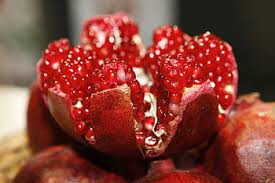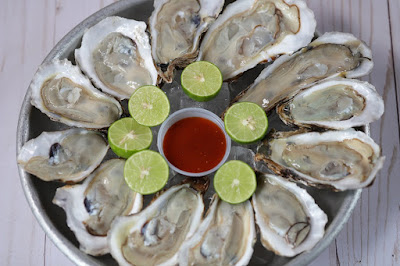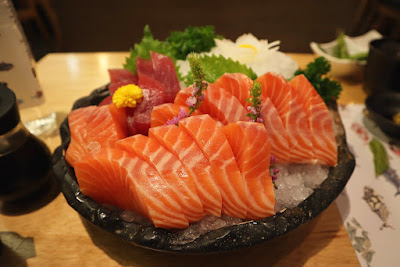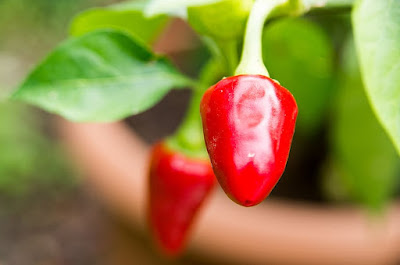Roasted mixed seafood
Food is not exactly medicine, but many of them have basic nutrients to keep the body in good condition. Among other things, they contribute to improving the body's response to various ailments by acting on the immune system and making it more efficient.
Sometimes it prevents us from falling ill and others help to reduce the symptoms of colds, flu, and other illnesses that affect us, especially in winter. These are some of the foods that experts recommend for their ability to affect the immune system.
1. Garlic:
It is healthy for different reasons. Formerly it was used to fight infections because it is an effective antibacterial and antiviral and antifungal. It lowers blood pressure and slows the hardening of the arteries. Garlic's immunological properties are due to its considerable concentration of sulfur compounds such as allicin. Prevents colds and fights fever.
 |
| Garlic |
2. Almonds:
The vitamin E they contain is vital to a healthy system. It is a fat-soluble vitamin, which means you need fat to absorb it properly. Almonds, as well as walnuts and other nuts, have both. About 46 raw skinned almonds provide almost the entire recommended daily dose of vitamin E.
 |
| Almonds |
3. Blueberries:
It has a flavonoid compound called anthocyanin, which gives it its dark color, with antioxidant and protective properties. They are especially valuable for the defense system of the respiratory tract. One study found that people who consumed them in quantity were less likely to have respiratory infections and colds.
 |
| Blueberries |
4. Poultry:
When you're sick, a bowl of chicken soup isn't just a placebo to make you feel better. It fights cold symptoms and is also preventive for future ones. When viruses invade tissues of the upper respiratory tract, the body responds by causing inflammation. White blood cells come to the rescue by moving to the area and defend themselves by causing mucus. Apparently, the ingredients in chicken soup stop this movement of the cells and thus prevent the appearance of mucus associated with the cold.
Both chicken and turkey have a lot of vitamin B-6. About 100 grams of meat provide between 40 and 50% of the convenient daily dose. This vitamin plays an important role in many of the chemical reactions that the body produces. It is vital in the production of healthy red blood cells, and the broth resulting from boiling the bones contains gelatin, chondroitin, and other nutrients that support the health and immunity of the intestines.
 |
| chicken soup |
5. Sweet potatoes:
It contains abundant beta carotene, which in turn provides vitamin A, good for the skin, and that prevents damage caused by ultraviolet rays. They have few calories and a good proportion of fiber.
 |
| Sweet Potatoes |
6. Broccoli:
It provides numerous minerals and vitamins, including A, C, and E, in addition to antioxidants and fiber. The best way to get all its nutrients is to cook it as little as possible or, better, take it raw.
 |
| Broccoli |
7. Mushrooms:
Selenium, along with the B vitamins riboflavin and niacin, is one of its basic components to increase defenses. They are also rich in polysaccharides, molecules with sugar that trigger immune function.
 |
| Mushrooms |
8. Dark chocolate:
Its secret is theobromine, which protects white blood cells from free radicals. These are molecules that the body produces by breaking down the food we eat or when it comes into contact with pollutants and that contribute to the development of diseases. In any case, it is not convenient to skip doses, because it has many calories and saturated fats.
 |
| Dark Chocolate |
9. Citrus:
Lemons, oranges, grapefruits, or tangerines stimulate, thanks to vitamin C, the production of white blood cells, the key to fighting infections. They are especially recommended to prevent colds. Since it is not produced or stored by the body on its own, you must eat foods that contain it every day.
 |
| Citrus Contained Fruit |
10. Shellfish:
It is not the food that is thought of as input to strengthen the immune system but may provide a considerable amount of zinc. It is essential for the cells that regulate this function to act appropriately. Crab, mussels, clams, and lobsters are some of the most highly contained.
 |
| Shellfish |
11. Turmeric:
It is one of the basic ingredients of many curries. But this somewhat bitter and deep yellow spice has been used in many cultures as an anti-inflammatory for bone and rheumatoid arthritis treatments. Recent research has found that high concentrations of curcumin, which gives this spice its color, may help alleviate muscle damage caused by excessive exercise.
 |
| Turmeric |
12. Spinach:
Although it's vitamin C, it's not its main property. It is especially recommended for its antioxidants and beta carotenes, which increase the capacity of the immune system to fight infections. They promote cell division and repair DNA. You have to boil them very little to take advantage of their benefits in the best possible way. It is not so convenient to be completely raw, because boiling it increases its vitamin A content and allows other nutrients to get rid of oxalic acid.
 |
| Spinach |
13. Wheat germ:
It is the innermost part of the grain of that cereal and its main values are zinc and vitamins E and, especially, B6. According to several studies, deficiency of the latter would cause a poor response of the immune system against diseases. Adding it to yogurt or smoothies, and even flour preparations is a good way to improve immune function.
 |
| Wheat germ |
14. Granada:
The extract of this autumn fruit has been shown to be effective in stopping the growth of bacteria such as E-coli, salmonella, listeria, among others, in laboratory tests. Some of its components are also considered to prevent the growth of bacteria in the mouth that lead to the growth of dental plaque and gum disease.
It also has antiviral properties, which act against influenza, herpes, and other viruses that favor the growth of intestinal flora that contributes to improving immune function.
 |
| Granada fruit |
15. Ginger:
It is one of the nutrients to which the Orientals resort when they are sick. It fights inflammations, such as those in the throat, and is also a palliative against nausea. Its pungent aftertaste is due to gingerol, a relative of capsaicin (which is what causes certain peppers to sting), which reduces chronic pain. It has cholesterol-fighting properties, according to recent animal studies.
 |
| Ginger |
16. Kefir:
The bacteria that this fermented milk develops are very healthy, especially for the immune system, because they fight other bacteria, reduce inflammation, and increase antioxidant activity.
It can be applied to other types of yogurt, which have vitamin D, which stimulates the production of natural defenses in the body. It is preferable to take the one with no added flavorings or sugar.
 |
| Kefir |
17. Kiwi:
In addition to other nutrients necessary for the body, it contains folate, potassium, vitamin K, and C, which stimulate white blood cells to fight infection.
 |
| Kiwi |
18. Oysters:
A dose of about 100 grams of mollusk ester provides 190% of the recommended daily selenium, 45% of iron, and 20% of vitamin C, in addition to 16 grams of high-quality protein. It also contains zinc and vitamin A. All these nutrients are critical to ensure the proper functioning of the defense system.
 |
| Oyster |
19. Papaya:
A single piece of this fruit can provide 224% of the amount of vitamin C that we should ingest daily. It also has powerful enzymes called papains with anti-inflammatory effects.
It provides considerable amounts of potassium, vitamin B, and folate, highly recommended for general health.
 |
| Papaya |
20. Fatty fish:
Salmon, tuna, mackerel, and other such fish are rich in Omega-3 fatty acids, which can help fight rheumatoid arthritis, a condition that occurs because the immune system inexplicably attacks a healthy part of the body.
 |
| Salmon+Tuna |
21. Red pepper:
It is one of the richest vegetables in vitamin C. It doubles, for example, that of citrus. Another important contribution it makes to the body is beta carotenes, highly recommended for eye and skin health.
 |
| Red Pepper |
22. Sunflower seeds:
Phosphorus and magnesium are just two of their components, in addition to vitamin B-6 and E, with high antioxidant power and essential for maintaining the immune system. So do avocados and green leafy vegetables.
 |
| Sunflower seeds |
23. Watermelon:
Potassium, vitamin A and C are its credentials as an enhancer of immune function; but it also has vitamin B and glutathione that favor it.
 |
| Watermelon |
24. Miso soup:
This Japanese national dish, made from a paste made from fermented soybeans, is rich in probiotics, beneficial for intestinal health, and stimulating the immune system.
 |
| Miso Soup |
25. Green tea:
It is content in flavonoids, a type of antioxidant, is important, but what makes it really beneficial is epigallocatechin gallate (EGCG), an even more powerful antioxidant that improves immune function. The fermentation process of black tea destroys a good part of it, making green, without fermentation, more convenient.
 |
| Green tea |
It is also a good source of the amino acid L-theanine, which contributes to the production of germ-fighting components of white blood cells.
|








































No comments